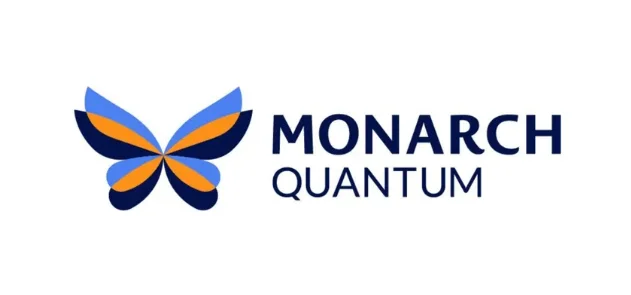
Experts already recognize the potential of quantum computing to be a world-changing technology.
The transformative wave of Artificial Intelligence, or AI, has also swept into almost every industry and field.
What would happen if humanity could combine the potential of quantum computing with the power of AI — and use it for good?
ApexQubit, a quantum software startup, said they are ready to find out.

The quantum computer startup bills itself as a second-generation platform for drug design that is powered by quantum computing and AI. According to Denis Farnosov, ApexQubit’s CEO and one of its founders, the power of quantum computing may be uniquely suited for solving the computational problems of finding the exact chemical compounds to create just the right drugs and treatments for a range of medical conditions. The startup is producing quantum algorithms to do just that.

“We are developing a platform to automate the drug design process for pharmaceutical companies,” said Farnosov. “Drug design is an early stage of the drug discovery process where we need to analyze different combinations of chemical compounds and find the right potential drug candidate.”
He added that drug companies currently engage in a labor- and cost-intensive process of trial and error to match the correct chemical compounds to come up with a possible drug treatment candidate. For ApexQubit, this inefficiency sparked their business idea to use quantum innovation.
“I was really surprised when I found out that this part of the drug design process was poorly automated — and still mostly requires physical experimentation,” he said. “Just imagine if we plan to invent a new space rocket and needed to physically build and then launch in order to see how different components work together in the ship.”
Farnosov said he realizes drug design isn’t rocket science. It’s a lot harder. In fact, drug design is a little like finding a needle in a haystack, but because human biology is wildly complex, the haystack is much, much bigger and the needle is much, much smaller.
“We really try to be objective here: everything isn’t so simple in biology, even when compared to space rockets,” said Farnosov.
The startup is betting that this incredible complexity may make it a perfect match for an incredibly complex problem solver: the quantum computer.
“ApexQubit’s software simulates molecular dynamics and this requires a lot of computational resources,” said Farnosov. “Currently available classical supercomputers can’t solve this problem properly and that’s why quantum computers attract our attention.”
“Using this technology, we believe that, at some point, we will be able to produce cheap, personalized drugs for everyone, so all humanity will benefit from it.”
Cheap, Personalized Drugs
The payoff for successful quantum computing-driven drug discovery, of course, for the startup could be great, however Farnosov said that the team hopes the real winner will eventually be humanity.
“Using this technology, we believe that, at some point, we will be able to produce cheap, personalized drugs for everyone, so all humanity will benefit from it,” said Farnosov.
While waiting for full-service quantum computers, the ApexQubit team is developing quantum algorithms for drug design, and researching how they can be merged with state-of-the-art artificial intelligence algorithms in order to unlock the technology potential.
Competition and Collaboration
The pharmaceutical space is, of course, one of the biggest markets in the global economy. There is also a growing interest for using both classical AI, quantum AI, and hybrid models to power drug discovery. For ApexQubit, that growing interest means growing competition, but the team looks at that as an advantage, not a disadvantage.
“The market is really huge,” Farnosov said. “We believe that there is still a lot of room for new players. It’s great to see that more and more companies are starting to explore how to automate drug discovery.”
Farnosov said that the huge potential of quantum computing attracted him to the space and inspired him to found a company.
“Quantum computing for about 50 year and I dived deeply into this technology a few years ago,” he said. “I’m really excited about the progress.”
Not only is this an interesting time to be in the quantum space, but Farnosov said it might be the perfect time to start a company because it’s an era when new ideas and new companies are matching up with — and sometimes against — the world’s biggest technology companies.
“So, now we have the first quantum computers that are commercially available,” Farnosov said. “We’re watching a race that is moving the technology forward and it’s a race that not only includes brand new startups in this space, but also big technology companies, like IBM, Google, and Microsoft. Winners of this race will benefit from the huge potential of quantum computing to transform several industries.”
Farnosov does not expect barriers in quantum business to be any different than other eras of sudden business or technological innovation. He added that startups, like his, are looking toward the development of quantum hardware to produce the kind of computational power necessary for drug exploration and design.
“I don’t think that there are any special barriers facing the adoption of quantum technology,” said Farnosov. “We are all observing the race in developments in quantum hardware.”
Lessons for Quantum Startups
Like many startups in the quantum space, ApexQubit mixes business with science. While it’s tempting to get lost in the amazing technology of quantum computing, Farnosov emphasizes good old startup common sense.
“I have two lessons for people starting businesses in the quantum space, but they’re lessons for starting up any business,” said Farnosov. “The first mistake startup businesses make is to build something that nobody wants. The second is they spend too much money.”
Distributed Team
The startup is a distributed company with members and advisors based around the world.
The leadership team includes Farnosov, Nihil Khaine, chief technology officer and co-founder; Yuhua Fang, biochemistry researcher, Barry Sanders, scientific advisor and board member; Marcin J. Skwark, data scientist and scientific advisor and Andris Ambainis, scientific advisor.
The startup has received backing from Overkill Ventures and HealthInc.














